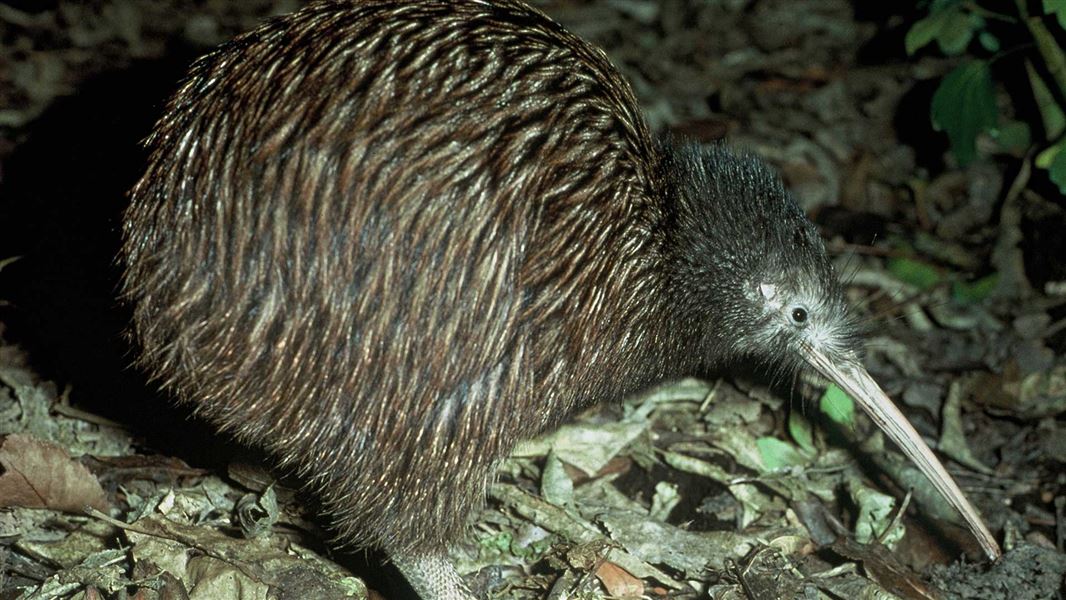Archived content: This media release was accurate on the date of publication.
Date: 11 September 2023
The kiwi, found collapsed and paralysed at the bottom of a cliff, was reported to the Department of Conservation by a member of the public on 15 August. After an overnight stay at a Warkworth vet clinic, the bird was transferred to Auckland Zoo’s veterinary hospital.
Dr An Pas, Auckland Zoo’s senior veterinarian, says, “Unfortunately, this was a critically ill kiwi, and despite intensive treatment and all our best efforts, it continued to deteriorate, making euthanasia the kindest and only option.
“Histolopathology results confirmed the presence of traumatic injuries to the kidneys and liver, as well as underlying diseases in the intestine, lungs, liver and heart. The exact cause of the trauma remains unknown. Nevertheless, the loss of the animal serves as a reminder to all of us to take care and reduce any disturbance that may pose a threat to vulnerable wildlife.”
It is suspected the kiwi came into the Omaha area from the Tāwharanui Regional Park. It was not one of the kiwi released by the Ngāti Manuhiri Settlement Trust and the Tamahanga Trappers in March 2023, as these kiwi were microchipped and had transmitters attached.
Ngāti Manuhiri Settlement Trust, who are the mana whenua and mandated iwi authority for Omaha, were notified immediately.
Mook Hohneck, Chairman for the Ngāti Manuhiri Settlement Trust, says, “This incident serves as a moving reminder of the vital importance of preserving and protecting our native wildlife, as they are not only the guardians of our land but also the carriers of our rich heritage.
“In this reflective moment, we recommit ourselves to ensuring that the silence left by the kiwi’s absence does not become a recurring event, so that future generations may continue to cherish this precious taonga.”
David Wilson, Tamahunga Trappers Chairperson, says, “The release of kiwi at Tamahunga adds to the kiwi population in Rodney. It also brings kiwi into areas where there are dogs, cats, vehicles and other threats within human control. The Tamahunga Trappers and our partners work hard to protect the kiwi now that they are back in our neighbourhood. Ultimately it is up to the public to decide, by their actions, if kiwi will have a future here.”
Rebecca Rush, Auckland Mainland Operations Manager, says the privilege of having wildlife thriving nearby comes with a responsibility to protect them.
“The discovery of this kiwi is a wakeup call that special wildlife species are living quite close to people in parts of Auckland. It is a strong reminder to keep pets under control and home at night, drive carefully around coastlines and forest roads, and be conscious about the wildlife living on our doorstep.”
Contact
For media enquiries contact:
Email: media@doc.govt.nz
